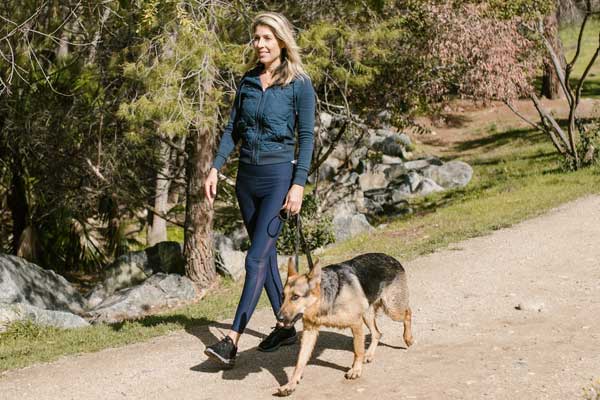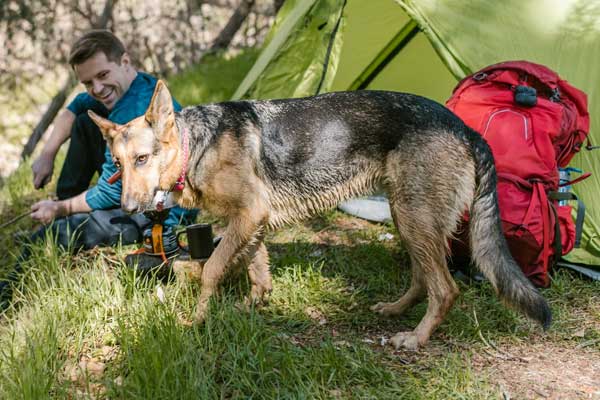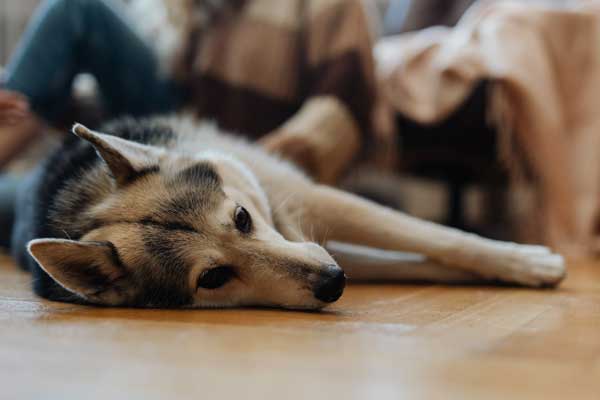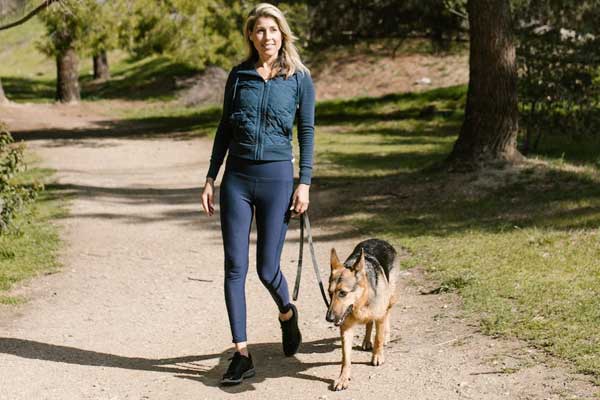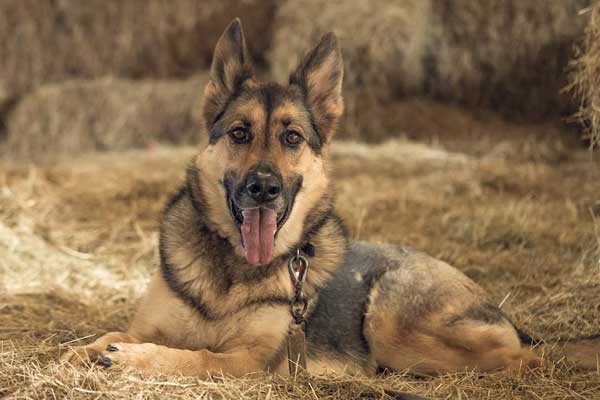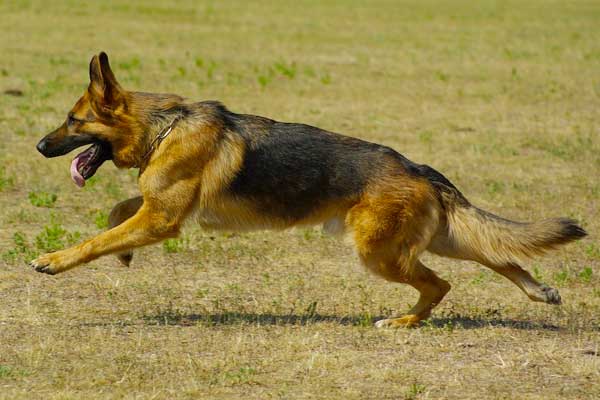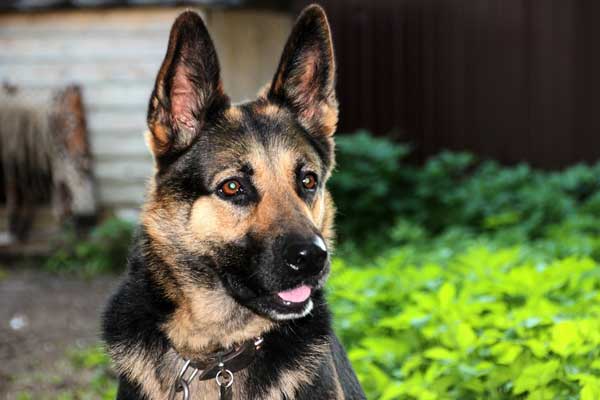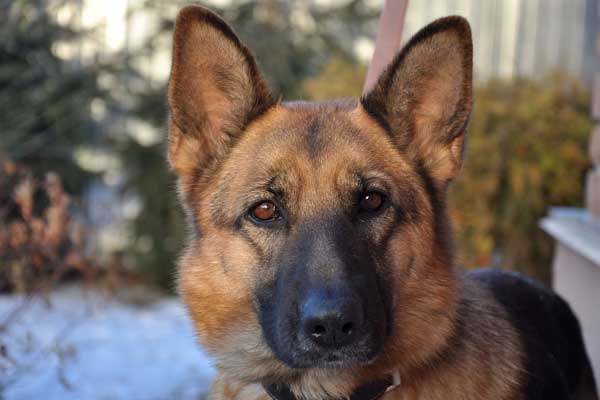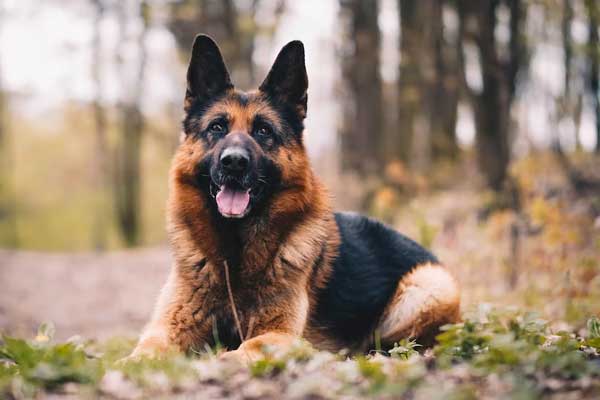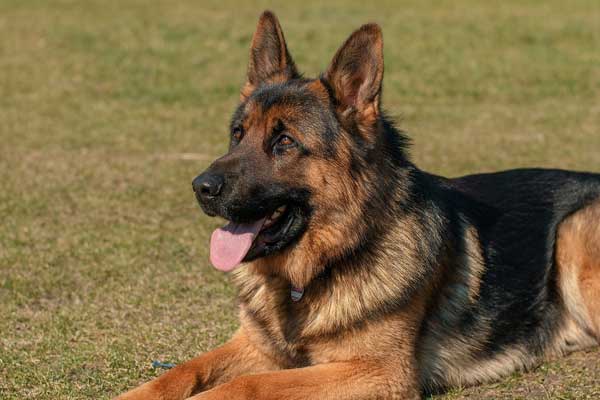How Much Exercise Does a German Shepherd Need for a Happy and Healthy Life?
German Shepherds are active, intelligent dogs that require regular exercise to stay healthy and happy. But how much physical activity should they get? What types of exercises work best for them? And what signs can you look out for if your German Shepherd needs to get more exercise?
In this blog post, we’ll discuss the benefits of regular exercise for German Shepherds and provide recommendations on amounts, types, and tips on incorporating physical activity into your dog’s routine.
We will also cover warning signs that indicate when your pup is not getting enough exercise and ways to ensure you are meeting their needs for physical activity. So let’s dive in!
How Much Exercise Does a German Shepherd Need
A German Shepherd puppy needs at least five minutes of formal exercise every month of their age, up to two hours a day for adults and 30-45 minutes for seniors.
Exercise is essential to keeping German Shepherds healthy, as it helps them stay fit, build strong bones and muscles, strengthen their immune systems, and helps to promote emotional well-being, as it provides an opportunity for mental stimulation and helps releases pent-up energy.
Benefits of Regular Exercise for German Shepherds
Improved Cardiovascular Fitness: Regular exercise is a great way to help German Shepherds stay physically fit while improving their cardiovascular fitness.
Walking, jogging, running, and swimming can all be excellent exercises that help increase your dog’s heart rate and keep its cardiovascular system in good shape. This can lead to improved endurance and less chance of them having a heart attack or stroke.
Lower Blood Pressure: Maintaining healthy blood pressure levels in your German Shepherd is essential. When your dog exercises, its heart rate and blood flow increase, which helps lower blood pressure.
This can help ensure they stay healthy and don’t suffer from serious health issues like hypertension.
Stronger Muscles and Bones: Regular exercise for your German Shepherd helps to strengthen their bones and build muscle mass. Exercise encourages joint movement, which can help prevent arthritis from developing over time.
Additionally, regular walking and jogging can help strengthen their legs and core muscles, giving them more power when they move around.
Decreased Stress: Walking and other forms of exercise can help reduce stress in German Shepherds. These activities can provide an outlet for pent-up energy and help them to relax, thus reducing anxiety or nervousness.
Regular physical activity also releases endorphins, the “happy” hormones that make your dog feel good and relaxed, lower blood pressure, stronger muscles and bones, and decrease stress.
Best Exercise for German Shepherds
German Shepherds are energetic dogs. They require regular exercise to stay healthy and happy, both physically and mentally.
Fortunately, plenty of activities can help keep your German Shepherd in shape!
From going on hikes to playing hide-and-seek with treats, here are eight excellent exercises for German Shepherds.
Going On A Hike: Going on a hike is an ideal way to give your German Shepherd the physical activity they need while also exploring new places together.
Be sure to bring plenty of water and watch out for any dangerous wildlife or terrain along the way!
Go Swimming: Swimming is another excellent exercise option for your pup! Not only will it provide them with good cardiovascular exercise, but it’s fun for them too.
Ensure you provide adequate supervision when swimming near bodies of water, so they don’t get into trouble.
Finding Objects: This game involves hiding objects around the house or yard (like toys or treats) and then having your pup search until they find them all!
It encourages problem-solving skills and provides the mental stimulation that helps tire out their brains without overworking their bodies.
Frisbee: Frisbee is a great way to get your pup’s energy out! Not only will it help them burn some extra calories, but it’s also an opportunity for you two to bond over a fun game of catch.
Just make sure not to throw the frisbee too far or too high to avoid any potential injuries.
Walking Or Jogging: Taking your pup on a walk is an excellent way to get them some regular exercise and spend quality time together.
If you want to make things more interesting, try jogging instead! This will require more energy from your pup and help them burn more calories.
Hide And Seek: This game is similar to finding objects, except it involves hiding and having your pup search for you! It’s an excellent way to give them a mental workout without putting too much strain on their bodies.
Play Fetch!: Who doesn’t love a good game of fetch? Not only does it provide your pup with exercise, but it’s also a great way to bond with them. Plus, it can easily be adapted to different environments depending on where you are (like playing in the backyard or at the park).
Playing With Other Dogs: If you can access other canine friends, why not let your pup play with them? Always supervise them at all times to avoid any potential fights or injuries. Dog play is an excellent way for your puppy to socialize and get some much-needed exercise.
With these eight exercises, you’ll have no problem finding the perfect activity for your German Shepherd!
Signs Your German Shepherd Isn’t Getting Enough Exercise
Without enough exercise, a German Shepherd can become overweight, display destructive behavior, be restless or withdrawn, stiffen up muscles, and bark excessively.
It’s critical to recognize the signs that indicate your pet isn’t getting enough exercise so you can take steps to ensure they stay healthy and happy.
Becoming overweight is one of the most common signs that your German Shepherd needs more exercise. If your dog has gained weight or looks heavier than usual compared to photos from before, it could be due to a lack of activity.
You should also look out for behaviors like excessive eating, as this may be a sign of boredom rather than hunger if there are no other changes in diet or lifestyle.
Destructive behavior is another sign that indicates your pet puppy isn’t getting enough exercise. Examples include chewing furniture, digging holes in the yard or garden beds, scratching walls and doors with their claws, etc.
These behaviors are often caused by boredom or frustration, which could mean they need an outlet for energy, such as playing fetch or going on walks regularly throughout the day/weekend/etc.
Restlessness is another symptom of insufficient activity levels. If your German Shepherd is constantly pacing the house, running around, and seeming unable to settle down for more than a few minutes, it could be due to a lack of exercise.
Being withdrawn or depressed can also happen when your pet doesn’t get enough activity. Dogs that need more physical and mental stimulation can become lazy and less interested in the people and things around them.
If your furry friend seems unenthusiastic about going on walks, playing catch, or engaging in any activity, then it may be time to adjust their daily exercise routine.
Stiffness is another tell-tale sign that your German Shepherd is not getting the exercise it should. If your pet has trouble walking or finds it difficult to move its limbs around, it may be because they haven’t been stretching and moving enough throughout the day.
Finally, excess barking can also indicate a lack of adequate activity levels. Dogs that don’t get enough exercise tend to bark more often while trying to release their built-up energy.
If you find your pet barking excessively, try taking them out for more walks or engaging them in interactive playtime with other dogs or toys.
5 Ways to Fit Exercising Your German Shepherd into Your Busy Life
Here are five ways to ensure your pup gets the exercise they need while still having time for other commitments.
1. Keep it short but effective: Short walks or runs with your German Shepherd are great if you’re tight on time. Taking them out for 10-15 minutes daily will help keep their energy levels balanced and give them much-needed mental stimulation and physical exercise.
2. Make a schedule: Schedule regular exercise sessions are crucial to fit everything around work and family life! Set aside a specific time each week where possible so that there’s no excuse not to take your dog out for a walk or run – even if it’s only 15 minutes here and there throughout the week, every little bit helps!
3. Take your dog on a workout walk: Instead of just going through the motions during walks, why not turn them into full-body workouts? You can add intervals like sprinting, jogging, or walking up hills, increasing your and your pup’s heart rate and challenging their muscles.
4. Buddy up!: Make your exercise sessions more enjoyable by finding a friend to walk or run with you and your German Shepherd. Having someone else to help keep you motivated will ensure that you and your pup stay on track!
5. Build an obstacle course: It can be great fun for your German Shepherd and will provide them with a mental and physical challenge. Find some open space in the park or your back garden to construct an agility or jumping course for your pup to enjoy!

